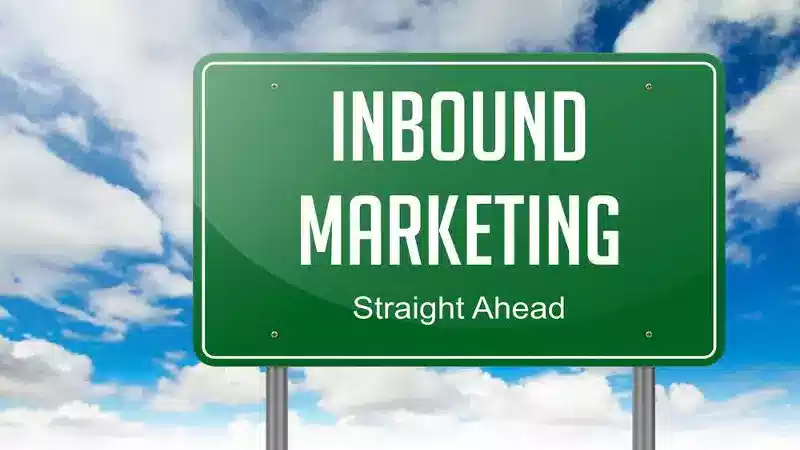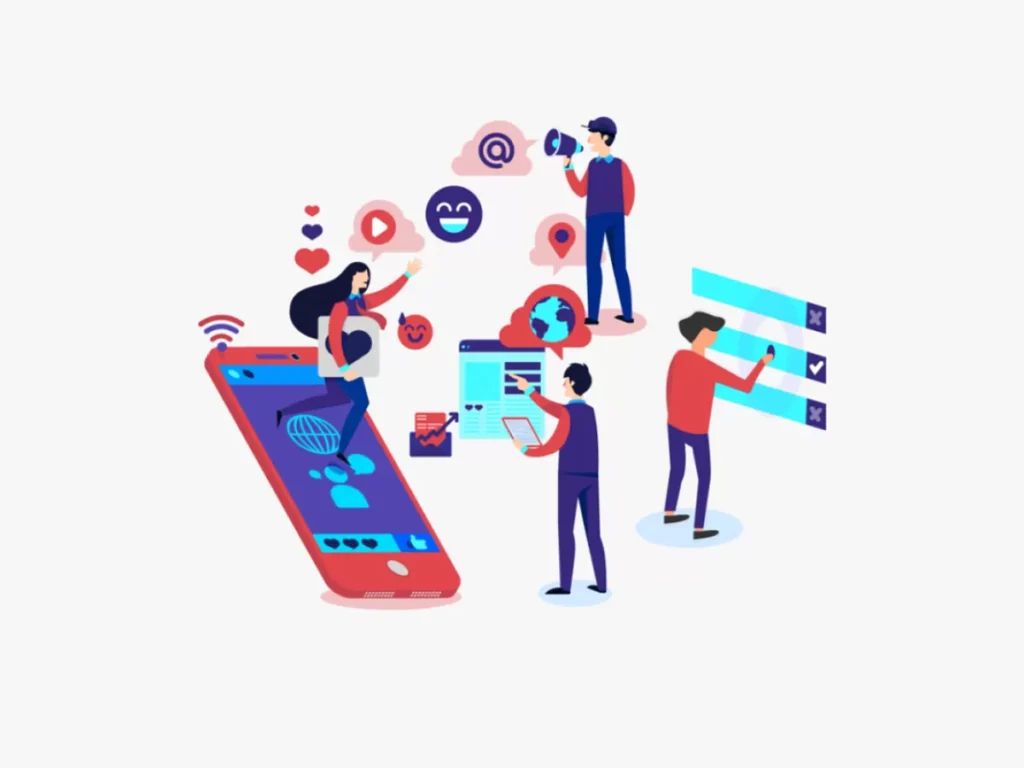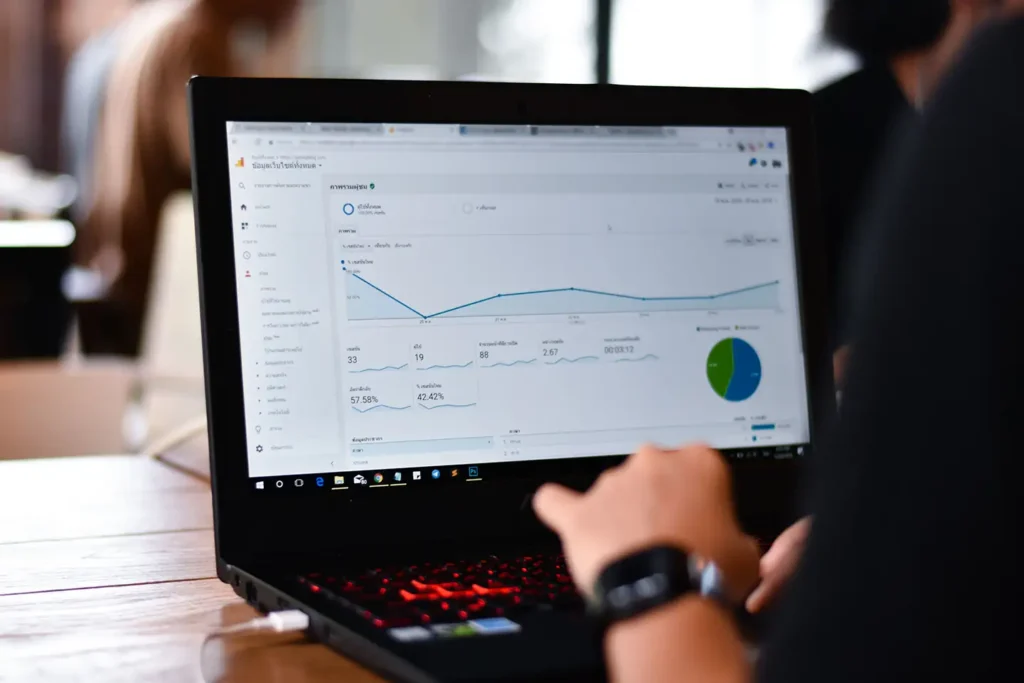In today’s digital age, businesses have shifted their focus from traditional marketing methods to more customer-centric approaches, such as inbound marketing. Unlike outbound marketing, which relies on interruptive tactics like cold calls and ads, inbound marketing centers around creating value and building meaningful connections. By offering helpful and engaging content, businesses can naturally attract potential customers.

A crucial element of this strategy is social media’s connection to inbound marketing. Social media platforms likeFacebook, Instagram, and LinkedIn have transformed how brands communicate with audiences. They provide the perfect stage for sharing valuable content, nurturing relationships, and engaging with potential customers where they already spend their time.
As the digital landscape continues to evolve, social media has become an indispensable tool for enhancing brand visibility and driving business growth, solidifying its role in a comprehensive inbound marketing approach.
Understanding Inbound Marketing
At its core, inbound marketing is about attracting potential customers by offering valuable, relevant content tailored to their needs and interests. Instead of pushing products through disruptive ads, inbound marketing focuses on drawing people in through blog posts, videos, eBooks, and other inbound marketing strategies. By fostering customer engagement, businesses can nurture relationships that eventually lead to conversions and sales.
In contrast, outbound marketing—such as TV ads, billboards, and direct mail—often interrupts consumers and pushes messages without considering their preferences. With inbound marketing, the focus shifts from interruption to interaction, where businesses earn customer trust by providing solutions to their problems. The ultimate goal is to create a seamless, personalized journey that naturally leads potential customers toward a purchase, ensuring a higher level of satisfaction and long-term loyalty.
Social Media: A Key Component of Inbound Marketing
Social media plays an essential role in any inbound marketing strategy, acting as a bridge between brands and their target audience. Unlike other channels, social media platforms allow businesses to engage with customers directly, offering real-time responses and fostering a two-way conversation. This personal connection strengthens brand loyalty and encourages users to share their positive experiences, amplifying the brand’s reach.

Incorporating inbound marketing social media techniques, such as sharing blog posts, videos, and infographics, helps businesses distribute valuable content to attract, engage, and delight their audience. Social media’s viral potential makes it easier for content to spread organically, leading to higher traffic and better customer relationships. By building a strong social media presence, brands can not only retain their current followers but also attract new customers, solidifying their role as trusted authorities in their industry.
Social Media’s Role in Driving Organic Traffic
Social media’s impact on driving organic traffic to websites is significant, despite social media not being a direct ranking factor in search engines. By sharing high-quality, engaging content on platforms like Facebook, Instagram, and LinkedIn, businesses can increase their visibility and prompt users to visit their website. Every shared post, blog, or infographic has the potential to attract more clicks, generating organic traffic and creating inbound links, which search engines value.
The relationship between social media and search engine optimization (SEO) is symbiotic. While social signals (likes, shares, and comments) don’t directly influence rankings, they contribute to increased traffic, improved user engagement, and backlinks—critical factors that search engines consider when ranking websites.
Additionally, popular content on social media can enhance brand awareness, leading to higher search volumes for your business and, ultimately, better positioning on search engine results pages (SERPs). Consistently sharing valuable content on social media can drive organic traffic while simultaneously boosting your SEO efforts.
Enhancing Brand Visibility and Authority
One of the most powerful benefits of social media in inbound marketing is its ability to enhance brand visibility and establish brand authority. By consistently sharing thought leadership content that addresses industry trends, customer pain points, and practical solutions, businesses can position themselves as trusted experts in their field. This not only strengthens the brand’s credibility but also attracts a loyal following.

Social media platforms amplify content distribution by making it easier for users to share valuable posts within their networks. When a post goes viral, it exponentially increases the brand’s reach, further enhancing visibility. The more your content is shared, the more exposure your brand receives, which can attract new followers, potential customers, and even media attention.
This organic amplification is a key component of successful inbound marketing, as it allows businesses to gain authority and build trust within their industry, all while expanding their digital footprint.
Targeted Advertising Campaigns for Precise Audience Engagement
A major advantage of social media platforms is their ability to facilitate targeted advertising campaigns. Unlike traditional marketing, where ads are broadly distributed, social media allows businesses to tailor their ads to specific audiences based on factors like demographics, interests, behaviors, and geographic location. This level of precision ensures that your message reaches the right people at the right time, increasing the chances of engagement and conversion.
Businesses can use social media’s advanced tools, such as Facebook Ads or LinkedIn Campaign Manager, to create highly customized campaigns that align with their marketing strategies. For instance, you can target users who have previously interacted with your website or content, ensuring you’re engaging with a targeted audience that already has an interest in your brand.
By running these targeted advertising campaigns, businesses can maximize their return on investment (ROI) by reaching specific customer segments with tailored messaging, leading to higher engagement, better conversion rates, and overall campaign success.
Building and Nurturing Customer Relationships
Social media platforms provide the perfect environment for fostering strong customer relationships through two-way communication. Unlike traditional marketing methods, which often function as one-sided conversations, social media allows businesses to directly engage with their audience in real-time. Whether it’s responding to customer comments, answering questions, or addressing concerns, brands can interact with customers on a personal level, creating an authentic connection.

This constant audience engagement helps businesses nurture long-term customer loyalty and satisfaction. By actively participating in conversations and responding to feedback, companies show that they care about their customers’ experiences. Over time, this regular interaction builds trust and strengthens relationships, turning casual followers into loyal customers.
By consistently offering valuable content and maintaining open communication, businesses can ensure they meet their customers’ needs, further increasing customer loyalty and satisfaction, which is crucial for sustained business growth.
Social Media as a Powerful Content Distribution Tool
Social media acts as a powerful content distribution tool, enabling businesses to share relevant content such as blog posts, videos, and infographics with a vast audience. With a well-defined social media strategy, businesses can strategically distribute content across various platforms to maximize engagement and reach. Sharing high-quality content not only provides value to the audience but also drives traffic back to the company’s website, generating leads and improving overall inbound marketing results.
By integrating social media into your broader inbound marketing strategy, you create a seamless flow of content from your website to your audience’s social feeds. Social media enhances the reach and visibility of each post, while also making it easy for users to engage with and share your content.
This extended reach helps amplify your brand message, increase brand awareness, and drive more website traffic, ultimately leading to higher conversions and business growth.
Leveraging User-Generated Content for Trust and Authenticity
User-generated content (UGC), such as customer reviews, testimonials, and shared experiences, is one of the most effective ways to build trust and authenticity with your audience. When customers share their positive interactions with your brand, it serves as social proof, demonstrating that your products or services are reliable. This valuable content helps potential customers feel more confident in their decision to engage with your business.
UGC also allows businesses to turn satisfied customers into brand advocates, who naturally amplify your brand message through their personal networks. These advocates help increase your reach and credibility, making it easier to attract and retain loyal customers while building a strong, trustworthy brand presence in the market.
Measuring Social Media’s Impact on Inbound Marketing Goals
To ensure your social media efforts are aligned with your inbound marketing goals, it’s essential to regularly track and analyze performance metrics. Metrics such as likes, shares, comments, and website traffic provide insights into how well your content is resonating with your audience. By closely monitoring these engagement metrics, businesses can gauge the effectiveness of their social media strategies.
A/B testing different types of content allows you to determine what resonates most with your audience’s preferences, helping to fine-tune your approach. Additionally, understanding these metrics helps businesses identify areas for improvement, enabling them to make data-driven decisions that optimize both their social media presence and inbound marketing outcomes. Continuously refining your strategy ensures you meet your goals, attract more leads, and increase conversions.
Social Media’s Role in Building Brand Loyalty
Building brand loyalty through social media is one of the key long-term benefits of integrating it into your inbound marketing strategy.
Consistent engagement with your audience helps foster meaningful connections, leading to higher levels of customer satisfaction and trust. Social media platforms give brands the opportunity to create personalized experiences by responding to inquiries, addressing concerns, and acknowledging positive feedback in real-time.
Brands that consistently provide value and maintain open communication with their audience are more likely to retain their customers and turn them into repeat buyers. Offering exclusive deals, behind-the-scenes content, and personalized recommendations through social media can further deepen customer loyalty.
Moreover, satisfied customers are more likely to recommend your brand to others, becoming advocates who can amplify your message within their networks. Over time, these loyal customers help solidify your brand’s reputation, creating a sustainable cycle of engagement, loyalty, and growth.
The Role of Social Listening in Inbound Marketing
Social listening is an essential tactic for understanding your audience’s needs and preferences. By monitoring social media conversations, trends, and feedback, businesses can gather insights into what their audience cares about most. This form of market research allows companies to tailor their content and messaging to better resonate with their target market, ensuring more effective inbound marketing campaigns.
Social listening goes beyond monitoring mentions of your brand. It helps businesses track industry trends, customer sentiment, and competitor strategies. By understanding your audience’s preferences, you can create content that aligns with their interests and solves their pain points.
This proactive approach allows businesses to stay ahead of industry shifts and adjust their strategies based on real-time feedback. Incorporating social listening into your inbound marketing efforts ensures you stay connected with your customers, providing them with relevant and valuable content that meets their evolving needs—helping you buildwinning ads campaigns with precise insights.
Integrating Social Media into Your Inbound Marketing Strategy
Incorporating social media into your overall inbound marketing strategy is crucial for driving traffic, building meaningful connections, and enhancing brand visibility. Social media offers unique opportunities to engage with audiences, distribute valuable content, and foster customer loyalty.
By consistently leveraging these platforms, businesses can attract potential customers, nurture relationships, and achieve sustainable business growth. In today’s digital landscape, social media is an indispensable tool for any successful inbound marketing approach.



